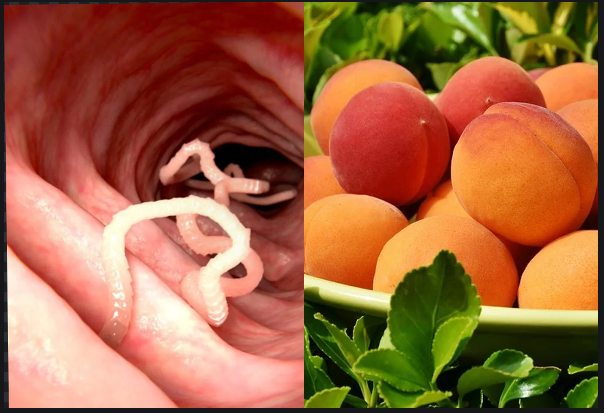Stomach worms, also known as intestinal parasites, are a common health issue affecting millions of people worldwide. They can cause various symptoms, including abdominal pain, bloating, diarrhea, and even malnutrition. While pharmaceutical treatments like Zentel 400 (Albendazole) are widely used to treat these infections, many people also explore natural remedies, such as peach leaves, for their potential benefits in managing and preventing stomach worms. This article will delve into the effectiveness of peach leaves for stomach worms and how they compare with conventional treatments like Zentel 400.
Understanding Stomach Worms
Stomach worms, or intestinal parasites, are organisms that live in the digestive tract of humans and animals. The most common types of stomach worms include roundworms, tapeworms, hookworms, and pinworms. These parasites can enter the body through contaminated food, water, soil, or poor hygiene. Once inside the body, they can cause various health problems, ranging from mild digestive issues to severe malnutrition and anemia, depending on the type and load of the infection.
Peach Leaves: A Natural Remedy for Stomach Worms
Peach leaves, from the peach tree (Prunus persica), have been used in traditional medicine for centuries to treat various ailments, including intestinal worms. The leaves contain several bioactive compounds, such as flavonoids, tannins, and saponins, which have been shown to possess anti-parasitic, anti-inflammatory, and antimicrobial properties. Here’s how these compounds can help combat stomach worms:
Anti-Parasitic Properties:
Some studies suggest that the bioactive compounds in peach leaves, particularly flavonoids and tannins, may have anti-parasitic effects. These compounds are believed to interfere with the metabolism and reproduction of parasites, thereby reducing their load in the digestive system. The saponins present in peach leaves can also help to create a hostile environment for the worms, making it difficult for them to survive and reproduce.
Digestive Health:
Peach leaves are known to promote overall digestive health, which can be beneficial in managing stomach worms. They help in soothing the digestive tract and reducing inflammation, which is often caused by the presence of parasites. A healthy digestive system can better resist infections and support the body’s natural defenses against parasites.
Immune System Support:
The antioxidants in peach leaves can help boost the immune system, making the body more resilient to infections, including those caused by stomach worms. A stronger immune response can aid in identifying and eliminating parasites more effectively.
How to Use Peach Leaves for Stomach Worms
To use peach leaves as a remedy for stomach worms, they can be prepared in various ways:
Peach Leaf Tea:
One of the most common methods is to brew a tea from fresh or dried peach leaves. Simply steep a handful of leaves in hot water for about 10-15 minutes, then strain and drink. This tea can be consumed once or twice daily for its potential anti-parasitic effects.
Peach Leaf Powder:
Another method is to grind dried peach leaves into a fine powder, which can be mixed with water, honey, or yogurt and consumed. This method may be more palatable for some people, especially children.
Infusions and Decoctions:
Peach leaves can also be used to make infusions or decoctions, which involve boiling the leaves in water to extract their active compounds. These preparations are often more concentrated than teas and can be taken in smaller doses.
Comparing Peach Leaves with Zentel 400
While peach leaves offer a natural alternative for managing stomach worms, it is essential to compare their effectiveness with pharmaceutical options like Zentel 400 (Albendazole). Zentel 400 is a broad-spectrum anthelmintic medication widely used to treat various intestinal parasitic infections. Here’s how the two approaches compare:
Effectiveness:
Zentel 400 is a proven and highly effective treatment for most types of stomach worms. It works by inhibiting the parasites’ ability to absorb glucose, leading to their eventual death. Peach leaves, on the other hand, may provide mild relief and support for digestive health but are not guaranteed to eradicate worms, especially in severe infections. Thus, peach leaves may be more suitable as a complementary therapy rather than a standalone treatment.
Safety and Side Effects:
Zentel 400 is generally safe when used as prescribed but may cause side effects such as nausea, dizziness, and abdominal pain in some individuals. Peach leaves are considered safe for most people when used in moderate amounts, but excessive consumption may lead to digestive upset or allergic reactions in some individuals. It’s always advisable to consult a healthcare professional before starting any new treatment, especially if you have pre-existing health conditions or are pregnant or breastfeeding.
Convenience:
Zentel 400 is easy to use, usually taken as a single dose or a short course, and is widely available at pharmacies. Peach leaves require more preparation, such as making tea or decoctions, which may not be as convenient for everyone.
Conclusion
Peach leaves offer a natural and traditional remedy for stomach worms, with potential benefits for digestive health and immune support. However, their effectiveness as an anti-parasitic treatment is limited compared to pharmaceutical options like Zentel 400. While peach leaves can be used as a complementary therapy, they should not replace proven medical treatments, especially in cases of severe parasitic infections. For those looking for a natural approach, incorporating peach leaves into the diet may provide some Health benefits, but it is crucial to consult with a healthcare professional to ensure safe and effective treatment of stomach worms.

